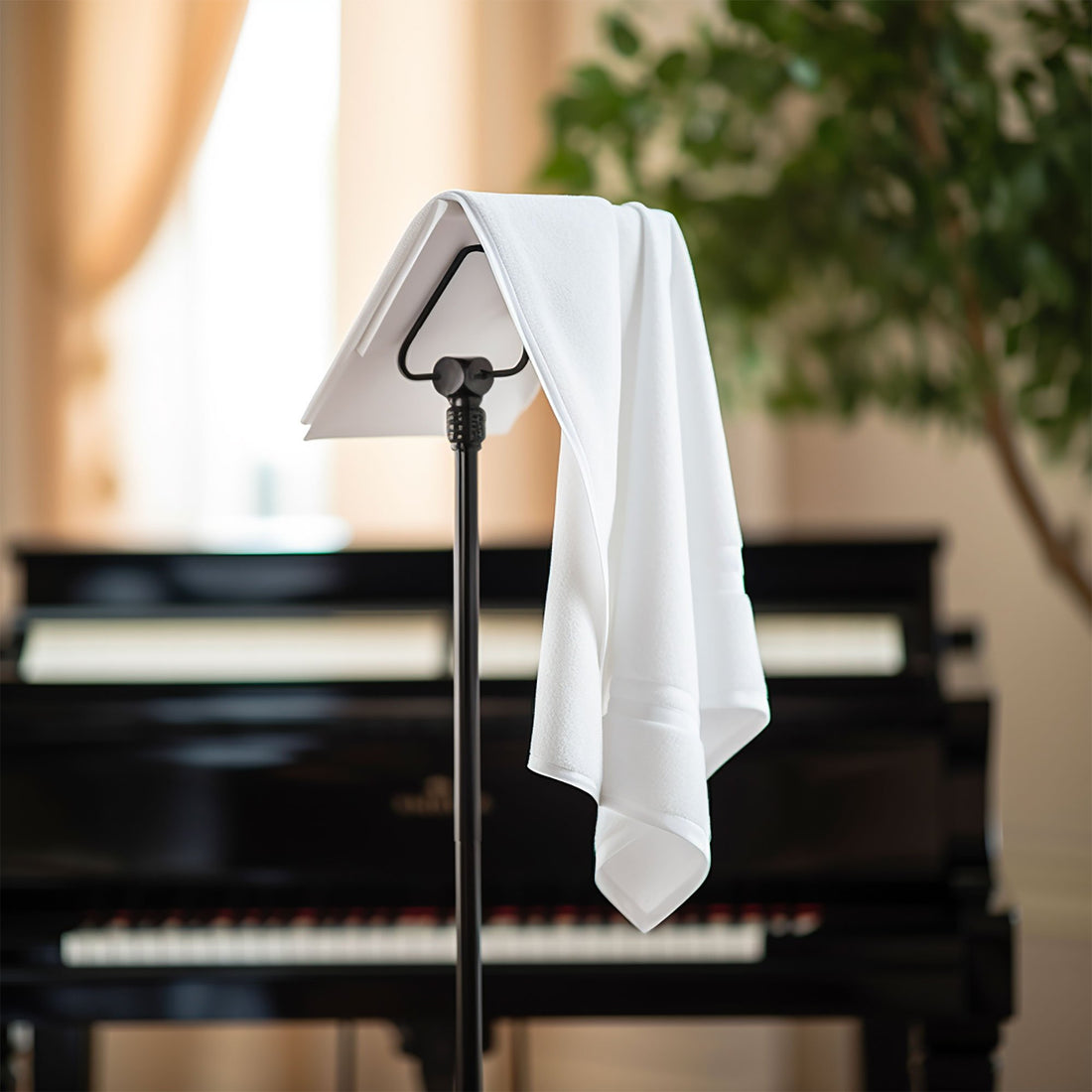
When is it time to throw in the towel?
Share
I got a note from Carol* (*not her real name), who asks a question I hear versions of somewhat often:
When is it time to throw in the towel?
Here’s her situation:
I was a percussionist (primarily mallet and auxiliary) for about 9 years--all through middle/high and some of college. As an adult I haven't had the physical space nor the funds for a mallet instrument again, so I haven't played music since quitting college band in 2012. In 2020 after a series of trial and error with different instruments, I settled on clarinet and got a Yamaha-255 used/refurbished from a local shop. In 2022 I finally actually played it, and took weekly lessons for most of the year but hit a plateau due to a longstanding mystery illness. Then, this summer, I got diagnosed with rheumatoid arthritis. I'm only 30! It hurts a lot to play clarinet now. I can't tell if that's because I'm not used to it, or if that's normal, or what. Everything I've read online says I should either: suck it up, buy a plateau keyed clarinet, or switch to something like alto sax or bass clarinet.
My question is this:
How do you think a newbie should know when to should stick with an instrument, versus when to try something else? I love listening to clarinet music, and I love the resonant feeling of playing (especially in the low register), but I'm feeling very discouraged by how difficult it is to cover the tone holes consistently. Between my small hands and my joint weaknesses, I basically end up overextending most of my first finger joints just to get enough pressure over the tone holes consistently. It's not conducive to any kind of speed other than long tones. My instructor last year got me out of that habit somewhat, but that just made me squeeze the instrument a lot harder and I ended up actually straining my thumb muscle at one point. And because I'm still new, I can't tell if my stuffy, difficult mid to high notes are a hands issue, an embouchure issue, or if my horn needs something adjusted. Or if I should try something else entirely.
Here’s my response:
It sounds like you have/had teacher who has provided some guidance, which is good. And there are teachers (my wife, Katherine, is one) who specialize in players who have these kinds of physical playing problems. This is to say, there is probably a solution for your particular situation, but it requires someone able to diagnose and work with you on your specific issues.
You can’t really do this yourself.
Trying to fix this on your own can actually do more damage. Sure, watching videos on YouTube or reading blog articles like this might provide some direction but let me put it this way: you wouldn’t perform surgery on yourself after watching a YouTube video. You shouldn’t go it alone with the issues you’re describing.
Your instrument may be part of the problem
It’s not always the brand, or model, that’s the issue. It very well could be the the instrument’s setup (or lack thereof). I say it all the time: the instruments you get from a local general music shop are often not set up by someone who knows clarinets, or, importantly, knows the problems (including musculoskeletal ones) that can arise from badly set-up instruments. Your instrument could be making your physical symptoms worse. This can be remedied, but you need someone who knows about stuff like this to assess the instrument.
Now, you mention plateau clarinets; Yes, there are plateau clarinets (we sell several from Uebel that are fantastic, if expensive) that can assist in the finger-covering-a-hole issues you describe. We sell these mainly to players who have issues just like yours (or worse!), and we lighten the spring tensions to make it very easy to press the keys. For many of our customers, this means they can continue to play the clarinet — or return to it after decades of what they thought were permanently-limiting hand problems.
So, there is hope.
So to your question: there is hope. You need help, though, and without it, you could be setting yourself up for more pain, less reward, and the disappointment those two will bring.
Feel free to reach out to us if you’d like to set up a consult.


1 Kommentar
I am interested in a bass clarinet.please respond thank you. Bob Flournoy